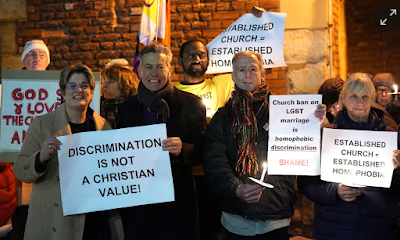Housing Crisis Deepens for Southern Queensland's Most Vulnerable: A Call for Urgent Action
The latest Rental Affordability Snapshot released by Anglicare Southern Queensland paints a bleak picture of the housing situation across the region. The report, which includes data from the broader southern Queensland area for the first time, highlights the dire circumstances faced by the most vulnerable individuals and families in securing adequate housing. Against this backdrop of crisis, it's imperative to examine not only the broader implications but also how specific marginalized communities, such as the LGBT+ population, are disproportionately affected.
The Rental Affordability Snapshot Findings:
Over the weekend of March 16-17, 2024, Anglicare Southern Queensland surveyed 8553 rental properties across the region. Shockingly, only a minuscule 0.5% of these properties were deemed affordable and suitable for households relying on income support, while a mere 8.9% were within reach for those earning minimum wage. This scarcity of affordable housing options forces vulnerable households into impossible choices between paying rent, meeting basic needs like food and healthcare, or accessing education.
Regional Disparities and Coastal Challenges:
The situation is particularly dire in coastal areas like the Gold Coast and Sunshine Coast, where the availability of affordable properties is almost non-existent. For instance, on the Gold Coast, there were zero affordable houses for households on income support, and only four accessible to those on minimum wage. These disparities extend beyond coastal regions, with limited availability or affordable properties often located hundreds of kilometers away, exacerbating the isolation and economic strain on already marginalized communities.
The Impact on the LGBT+ Community:
This housing crisis intersects with various marginalized identities, including those within the LGBT+ community. Research indicates that LGBT+ individuals face higher rates of poverty, lower rates of homeownership, and increased risk of homelessness compared to their cisgender heterosexual counterparts. Discrimination and stigma further compound these challenges, with many LGBT+ individuals experiencing harassment and bias from housing providers, barriers to accessing shelters, and disparities in mortgage lending approval rates.
Policy Recommendations and Call to Action:
While efforts are being made at state and federal levels to address the housing crisis, including initiatives like the Queensland Housing Investment Fund and Housing and Homeless Action Plan, more comprehensive reforms are urgently needed. Advocates are calling for increased support for social and affordable housing projects, alongside policy reforms to address systemic discrimination and ensure equitable access to housing for all individuals, regardless of their gender identity or sexual orientation.
Conclusion:
The Rental Affordability Snapshot serves as a stark reminder of the urgent need to address the housing crisis facing southern Queensland's most vulnerable communities. As policymakers prepare for the upcoming Federal Budget announcement, it's imperative that housing policies prioritize the basic human right to safe and secure housing for all. Only through concerted efforts and comprehensive reforms can we begin to alleviate the suffering of those disproportionately impacted by the housing crisis, including the LGBT+ community.
Visit the Queensland Government's housing support page to access valuable resources and guidance: Get help with housing.






No comments: